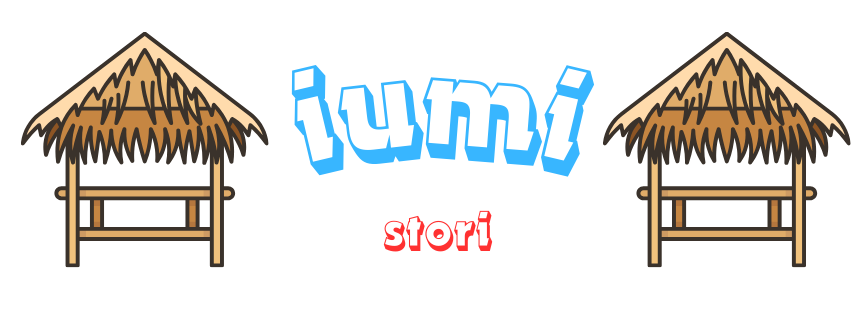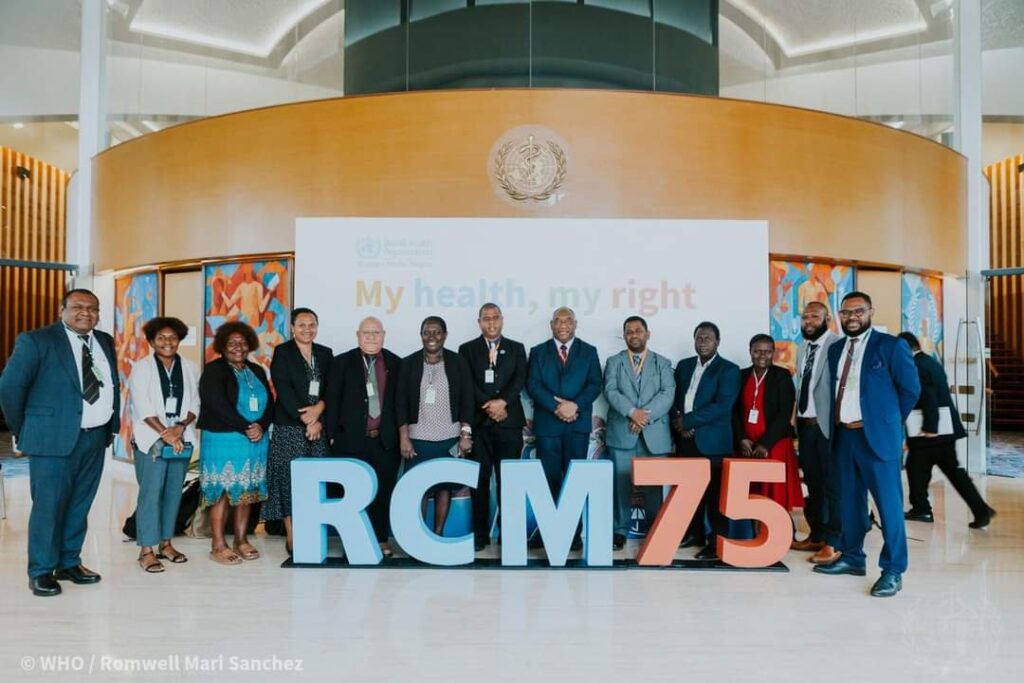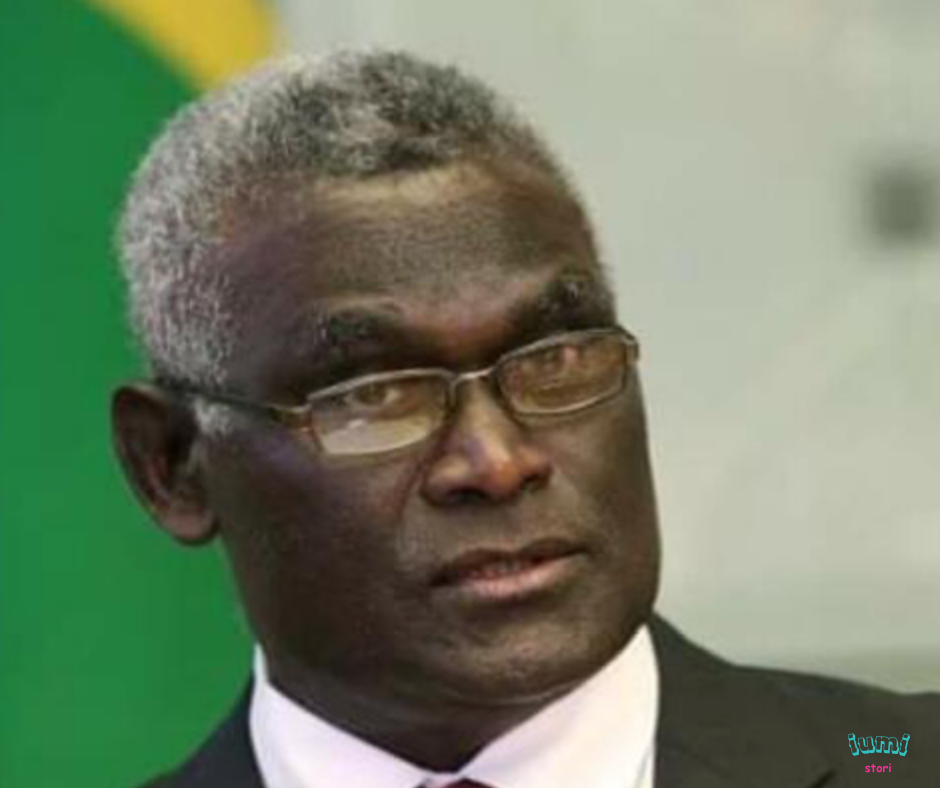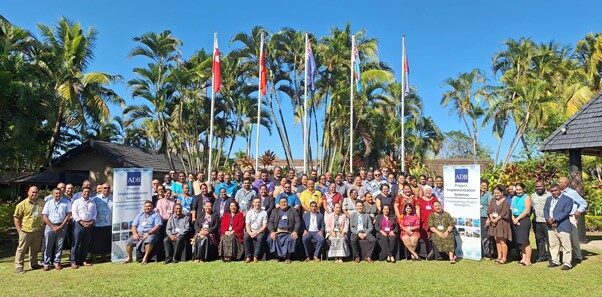The Minister for Health and Medical Services (MHMS), the Hon, Dr Paul Popora Bosawai has informed the health leaders at the WHO 75th Regional Committee meeting of Solomon Islands’ challenges and interventions on Health Financing, Oral Heath and Digital Health.
In October this year, WHO in partnership with member states, developed a draft Regional Action Framework for Health Financing to achieve Universal Health Coverage and Sustainable Development in the Western Pacific. Aimed at improving Health financing, the framework focuses on 5 areas including greater reliance on public funding for health, equitable and efficient health spending, financing public health care, strengthened governance in health financing and promoting health in both economic and social policies.
Health Minister Bosawai informed fellow Health Ministers and Leaders from the Western Pacific Region that Solomon Islands’ health sector, despite, consistently being a top priority in government funding, receiving the second-largest share of total domestic funding (12%) of the National Budget, is unable to cater for the growing demand for health services by the populkation.
“This is largely due to having health budgets being historically based on previous years’ allocations than on needs-based estimates conducted by the Ministry of Health. With limited resources, the ministry conducts annual budget analysis to identify financial pressures and inform decision-making regarding resource allocation in managing cost pressures while at the same time ensure continuity of essential health services.
“The health sector benefits significantly from external financing, which supports various health programs. However, one of the key challenges is the low execution of external budget support, with an average execution rate of only 60%. In 2022, the Ministry conducted a Budget Execution Case Study, followed by a 2023 study focusing specifically on External Budget Support. These studies identified root causes of the low execution rate, informing the Ministry’s dialogue on potential reforms. Key issues included the regularity of fund flows, the effectiveness of spending controls, and the robustness of procurement, Human resources capacity to absorb substantial funds, and accountability mechanisms.
“Ministry of Health oversees both national and subnational health services, acting as both regulator and funder for over 300 facilities scattered across the country. Because the annual budget ceilings for entire health services are predetermined outside MHMS (by the Ministry of Finance and Treasury), it limits our ability to cost effectively for subnational services, therefore any increase to subnational will reprogram within the ceiling at the costs of other health programs.
The centralized nature of health budget allocation has resulted in underfunding of primary healthcare services at the subnational level. In response, the Ministry undertook a Health Spending and Outcome Mapping Analysis in 2023 to assess whether increased financing directly correlates with improved health outcomes,” said Minister Bosawai.
On Oral Health Minister Bosawai, informed fellow Health Leaders, regarding the Global Strategy on Oral Health and the Global Oral Health Action Plan 2023 – 2030. The Minister also urged WHO to support Solomon Islands in research and technical support in Oral Care.
“In response to the Global Strategy on Oral Health and the Global Oral Health Action Plan 2023 – 2030, we are developing a national oral health policy 2025 – 2030 which we hope to launch in 2025. At the same time, we are working in collaboration with the national NCD program so that oral health is also integrated into the NCD policy 2025 – 2030.”
“We urge WHO to support member states particularly in the area of research to better understand our oral health status to help build the evidence base for policy development and planning for the future. We also urge WHO to provide technical support to integrate oral health in national health information systems,” said Minister Bosawai.
Meanwhile presenting Solomon Islands intervention on Digital Transformation, Minister Bosawai highlighted the work it was doing with the World Health Organization in this area.
“The Ministry of Health and Medical Services in the Solomon Islands is actively advancing digital health initiatives with the support of the World Health Organization and various stakeholders. Key trends include telemedicine and remote care, aligned with global initiatives such as the National Strategy on Digital Health. The Ministry conducts regular stakeholder meetings and is currently undertaking a digital health maturity assessment (DHMA) with the support of WHO. This assessment, focusing on eight critical domains, involves interviews and surveys with a wide range of stakeholders and health facilities. Preliminary findings highlight significant infrastructure gaps, financial sustainability issues, low digital literacy among healthcare workers, and limited data utilization at lower administrative levels.
“Interviews and surveys are currently being conducted with a wide range of stakeholders, including various departments within the Ministry of Health and Medical Services (MHMS) and national health programs, other government ministries, development partners, external entities such as SINU (Solomon Islands National University), and 35 health facilities across all 10 Provinces of Solomon Islands, said Minister Bosawai.
End//
MHMS



